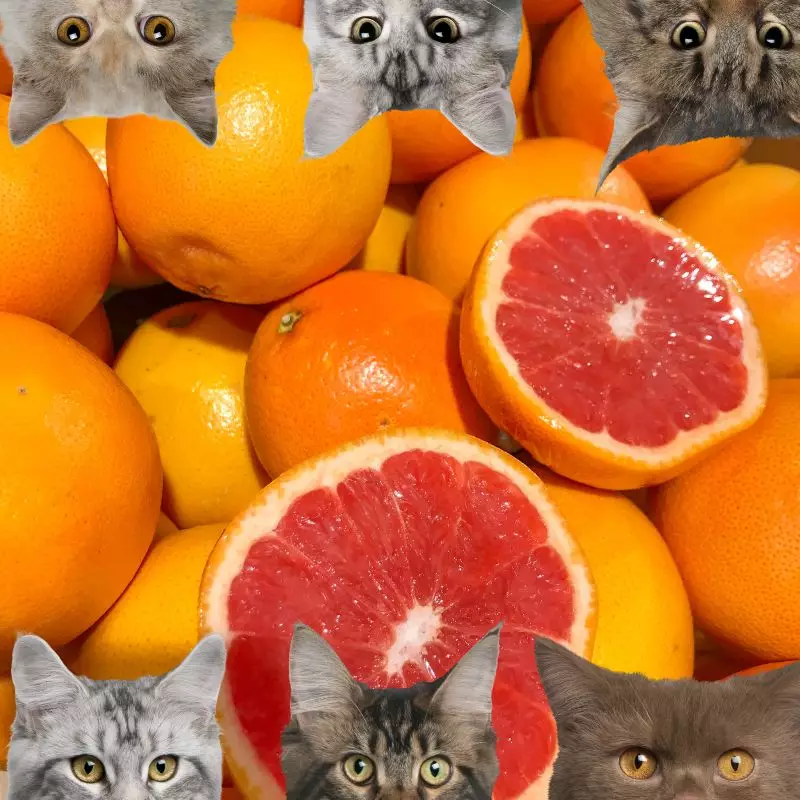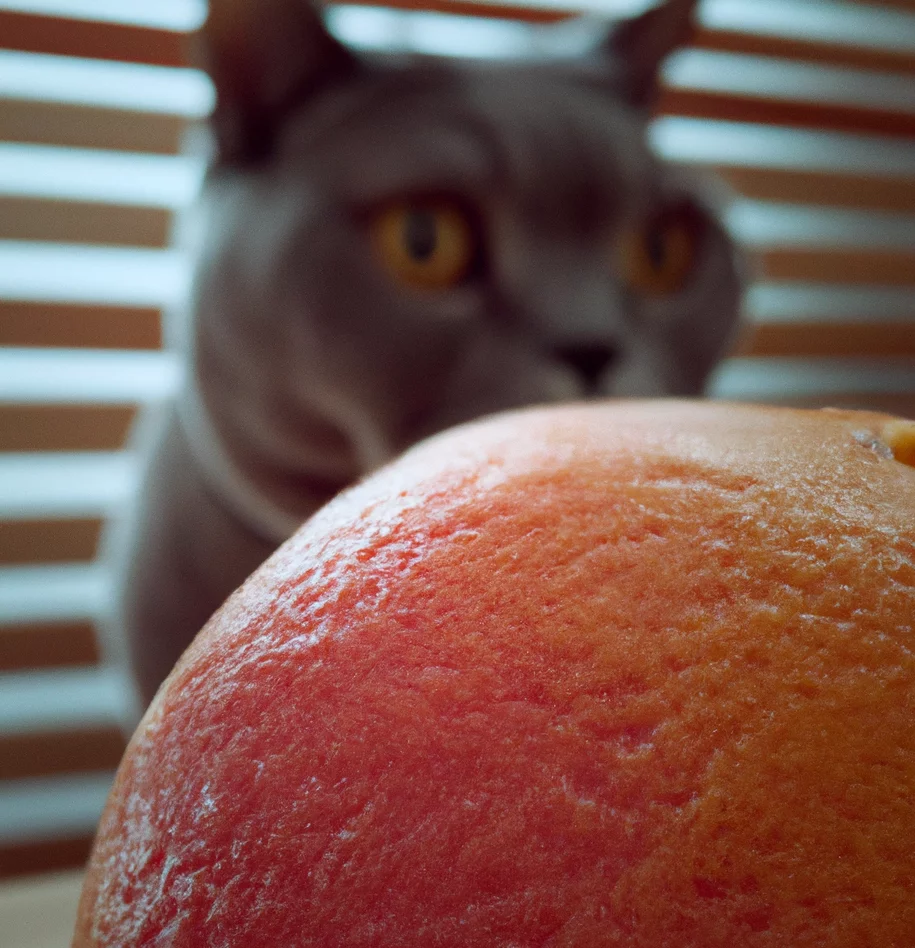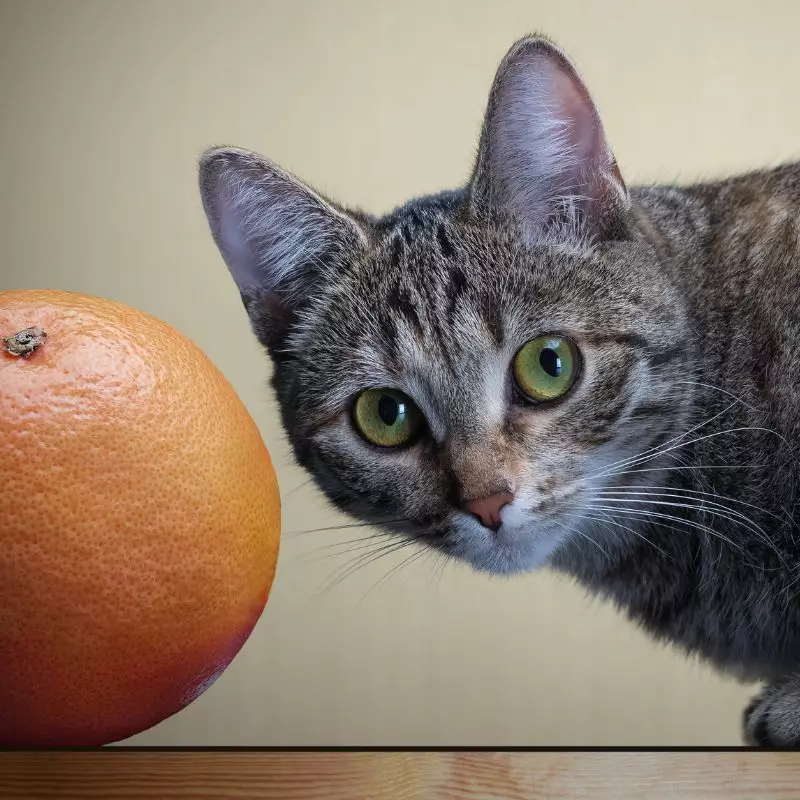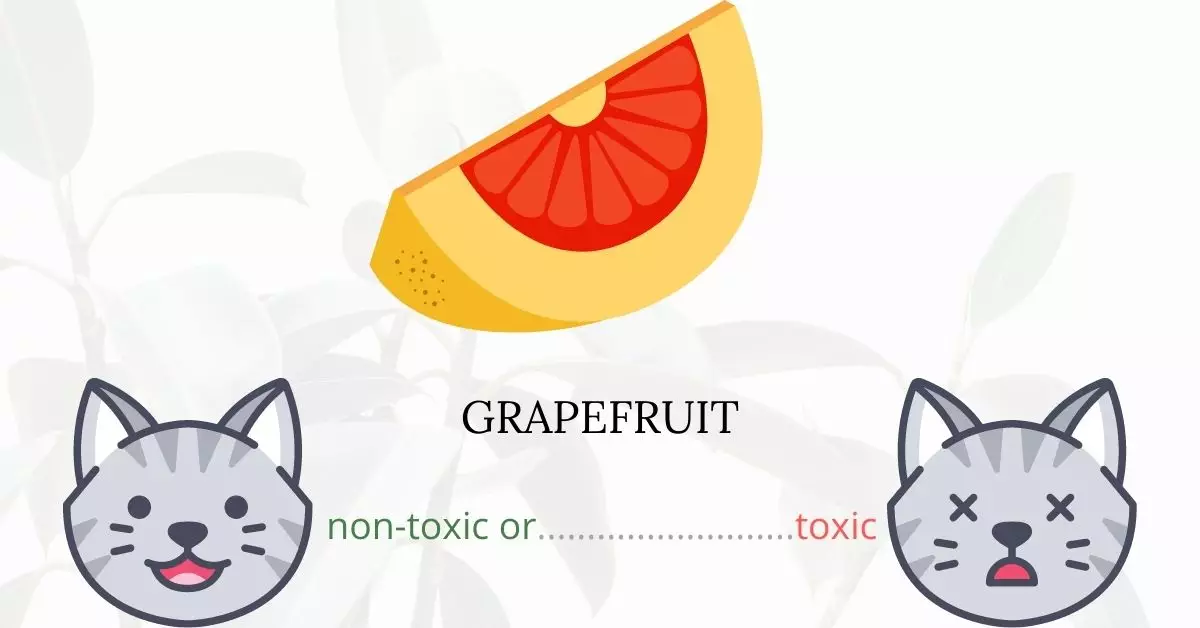Yes, grapefruits are toxic to cats. Grapefruit, while a favorite fruit in many households and safe for human consumption, is dangerous for our feline companions. It contains psoralen chemicals, which are harmful to cats; these chemicals can be absorbed through the skin and when ingested. Every part of the grapefruit — from the peel to the seeds — is considered toxic to cats, leading to severe symptoms such as diarrhea, vomiting, and photosensitivity.
This article is the product of collaboration with a team of experienced DVMs (doctors of veterinary medicine). Their invaluable insights and contributions ensure the accuracy and relevance of the information provided here, especially concerning the potential risks associated with various plants, with grapefruits being our primary focus in this piece. Furthermore, to guarantee the credibility of our findings, we have also researched high-authority websites such as ASPCA and PetMD for each plant discussed.
Clinical Signs of Grapefruit Poisoning in Cats

When cats come into contact with, smell, or ingest grapefruit or its parts, they may experience several clinical symptoms due to the toxic psoralen chemicals found in the fruit. Understanding the origins and reasons for these symptoms can assist pet owners in recognizing them early:
- Depression: The toxins in grapefruit can affect a cat’s central nervous system, leading to mood alterations and manifesting as depression.
- Lethargy: After ingesting the toxic compounds from grapefruit, a cat’s energy levels might drop significantly, making them less active or responsive.
- Trembling: This could be a result of muscle irritation or a reaction of the nervous system to the toxic elements in grapefruit.
- Drooling: The immediate bitter and irritating taste of the grapefruit can cause excessive salivation or drooling in cats.
- Vomiting: The cat’s body may try to expel the toxins by inducing vomiting. This is a direct gastrointestinal response to the irritants found in grapefruit.
- Diarrhea: Similar to vomiting, diarrhea is another way the body tries to rid itself of the ingested toxins, leading to gastrointestinal upset.
- Photosensitivity: Psoralen, a compound in grapefruit, can cause cats to become more sensitive to light, leading to sunburn-like symptoms when exposed to sunlight.
- Dermatitis: When a cat comes in direct contact with grapefruit, it can lead to skin inflammation or dermatitis, as the skin reacts to the toxic compounds.
- Liver or renal failure: The toxins in grapefruit, when ingested in large amounts, can put excessive stress on the liver and kidneys as they attempt to process and eliminate these harmful substances. This can lead to liver or renal failure if not treated promptly.
If you suspect your cat has ingested or come into contact with grapefruit, it’s imperative to consult a veterinarian immediately to ensure their safety and well-being.
First Aid and Treatment of Grapefruit Poisoning in Cats

To manage poisoning symptoms, your cat will get supportive care. Vomit induction, the use of activated charcoal, and gastric lavage are some of the options of your veterinarian. Your cat will receive intravenous fluid therapy to prevent dehydration caused by vomiting and diarrhea. The vital signs and organ function of your cat will be closely monitored. Organ function may be monitored through blood tests and urinalysis. If necessary in your cat’s condition, medication to support liver and kidney function will be supplied.
Recovery from Grapefruit Poisoning in Cats

If your cat has been poisoned by grapefruit, he or she may need to follow a particular diet to recuperate from any damage to internal organs like the liver or kidneys. Grapefruit absorption or consumption should be watched for any additional signs that could signal long-term consequences or damage to your cat. The vet may require follow-up appointments based on your cat’s condition.
Prevention of Grapefruit Poisoning in Cats
It is not recommended to grow grapefruit trees within your property if you have cats living with you. You should keep your cat indoors to minimize the risk of exposure to grapefruit and other poisonous plants in nearby areas.
If you love plants but have cats at home, check out these lists:





